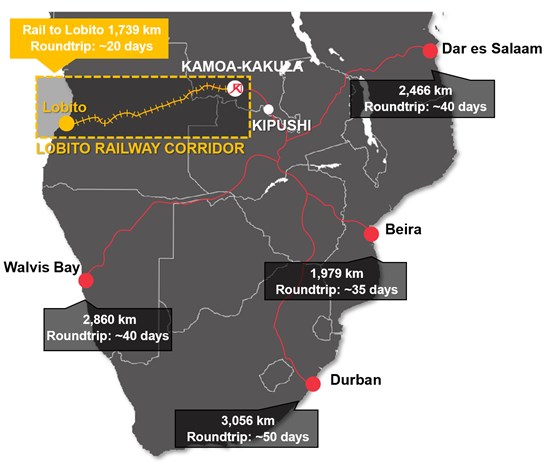Zambia, a nation rich in copper and cobalt, has become a battleground for international influence as the US and China vie to lead two major railway projects. These projects, crucial for transporting minerals to global markets, hold significant economic and strategic implications for Zambia and the wider region.
The US-backed Lobito corridor project aims to modernise an existing railway line from the Democratic Republic of Congo (DRC) to the Angolan port of Lobito, along with constructing new tracks within Zambia itself. Estimated at $2.3 billion, this project promises to significantly expedite mineral transportation. However, concerns linger regarding funding, with construction on the new Zambian tracks potentially delayed until 2026.
China, meanwhile, proposes the revival of the historic Tazara railway, connecting Zambia to Tanzania’s Dar es Salaam port. Valued at over $1 billion, this project aims to revitalise a trade route of historical significance. China is moving swiftly, sending engineers to assess the existing line and offering financing through a state-owned company.
Both the US and China show additional interest in fostering Zambia’s battery manufacturing sector, aiming to add value to the extracted minerals and create local jobs. This strategic move positions them favourably in the global electric vehicle market, which heavily relies on these minerals.
President Hichilema has openly welcomed the Lobito corridor project, acknowledging its potential benefits. However, Zambia faces the delicate task of navigating the competing interests of global powers. Carefully evaluating each proposal’s long-term economic and strategic advantages will be crucial as Zambia seeks to leverage these projects for its own development goals.

